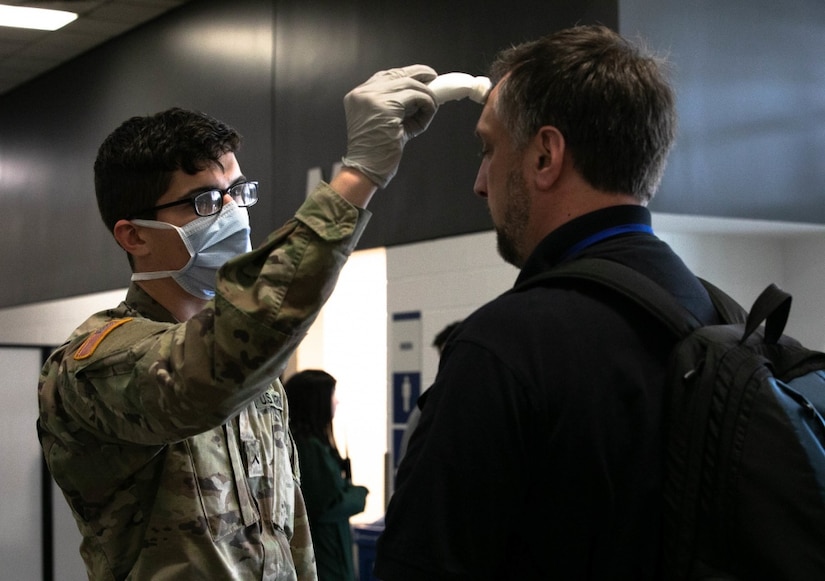May 1, 2020 | BY Sean Kimmons, Army News Service
The Army aims to soon resume collective training and hold a
ceremony for graduating West Point cadets after the success of measures
safeguarding new recruits at training centers.
In a Pentagon briefing Thursday, Army Secretary Ryan D.
McCarthy said a proposed risk mitigation framework that outlines a safe return
to exercises is being finalized with the help of the defense secretary and
other services.
"As we balance global operations and combating COVID-19
on the homefront, the Army continues to need a manned, ready force," he
said. "We will continue to take the necessary precautions to protect the
force, and we will enable commanders [with] the flexibility to make
conditions-based decisions."
Thousands of new recruits have moved through initial
military training sites in the past few months, he said, while at the same time
the Army has been protecting them against the virus.
Once recruits arrive, they are placed in groups and screened
and tested for the virus, as controlled monitoring and tactical dispersion
measures continue during their cycle.
"We are creating the safety bubbles that will protect
the force while they conduct training," Army Chief of Staff Gen. James C.
McConville said, adding over 800 recruits were shipped to training sites last
week.
The Army looks to replicate similar measures for
home-station training and rotations at combat training centers. Gen. Michael
Garrett, commander of Army Forces Command, said Tuesday that the
newly-activated 4th Security Force Assistance Brigade is slated to be the first
unit to train again at the Joint Readiness Training Center in June.
On Wednesday, McConville visited the Joint Readiness
Training Center at Fort Polk, Louisiana, to see firsthand how it will safely
receive units. "Getting back to collective training is crucial,"
McConville said, "but we need to make sure we have the right measures in
place first."
Training opportunities, though, may vary depending on the
threat of the virus at a specific location. "It's not going to be a
one-size-fits-all solution," he said. "We're looking at the long
game. We're not waiting for COVID-19 to go away."
As the Army — including its efforts with national
laboratories and private industry — works to find a vaccine, the general said
the service will need to operate under a COVID-19 environment for some time.
"We can't telecommunicate to combat," he said.
"Our troops need to be ready to go. And what we need to do as leaders is
put the appropriate risk measures in place."
Future Army officers will also need to be prepared for their
first duty assignment. Graduating cadets at the U.S. Military Academy, for
instance, are set to return to West Point, New York, to complete medical and
administrative tasks needed for them to commission.
The cadets left the academy's grounds on March 6 for spring
break and have attended remote classes ever since.
"We have to bring the cadets back to start the process
to get them to their initial duty assignment," McCarthy said. "There
are tasks they have to perform at the academy."
The cadets are scheduled to arrive at nearby Camp Buckner,
where they will be screened and tested for the virus. Afterward, they will
return to their quarters for quarantine.
"While they're at West Point, they will be [separated]
the entire time," Army Lt. Gen. Darryl Williams, the academy's
superintendent, said. "They will come back in five cohorts, [and] no
cohort will intermingle while they are there for those 14 days. They'll eat and
live separately."
While at the academy, the cadets will be able to complete
physicals necessary for their branches, clearance requirements and collect any
of their personal items.
On June 13, President Donald Trump is also expected to speak
at their graduation ceremony, which will be held using safety measures, such as
physical distancing. "We'll do it safely," Williams said. "We're
going to take care of them."

No comments:
Post a Comment